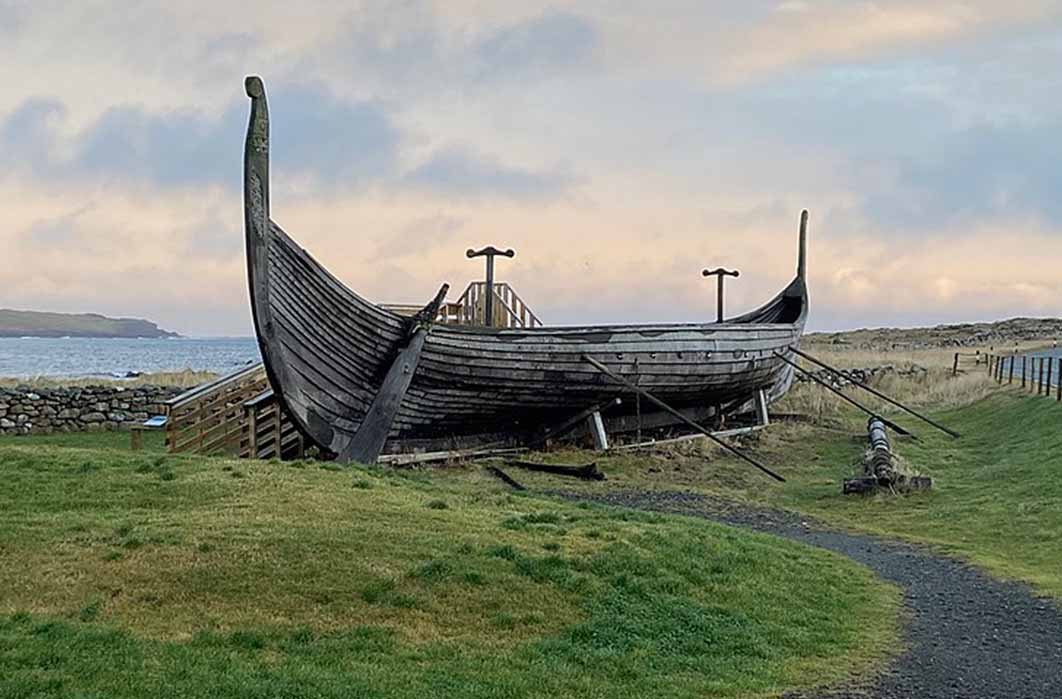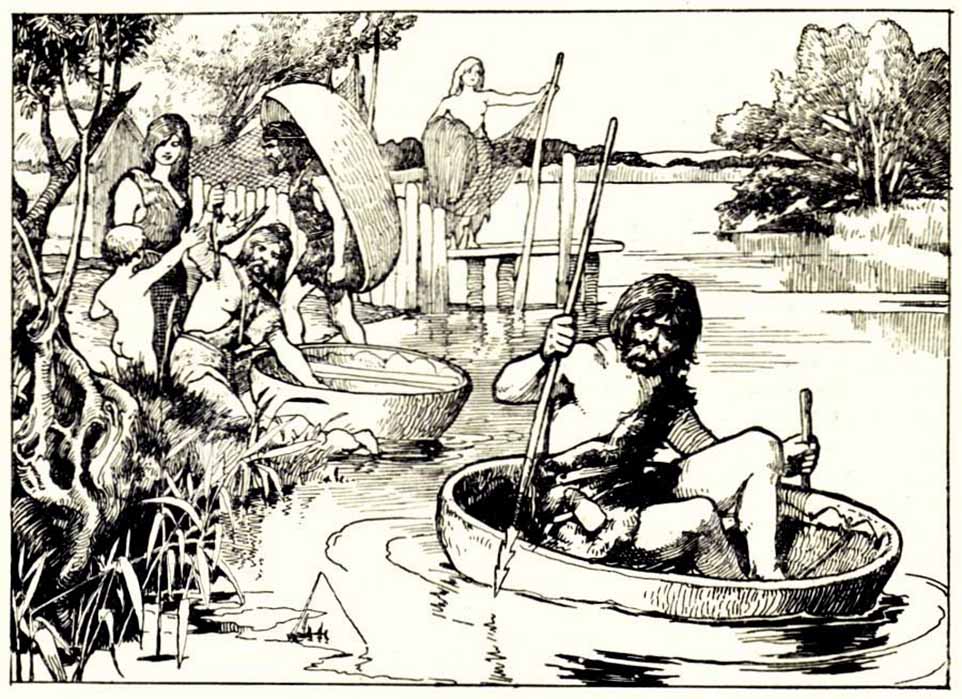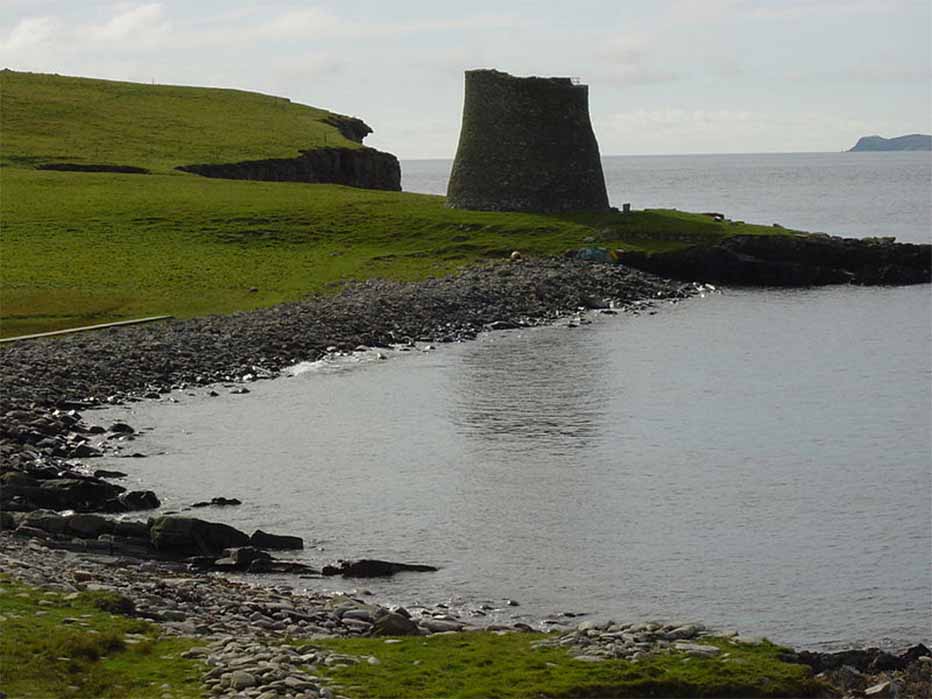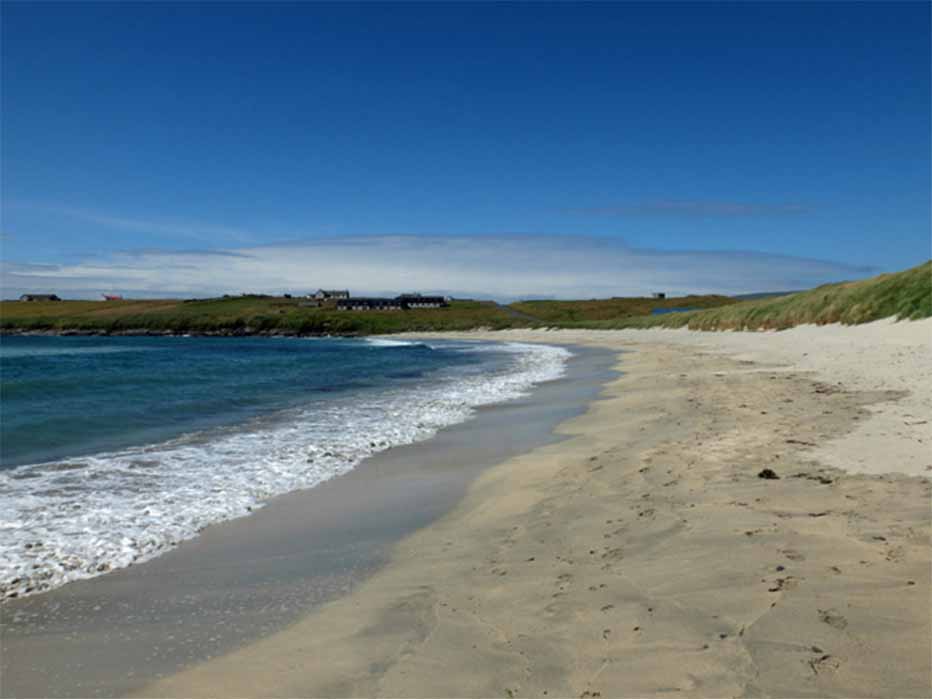
5,000 Years of History Still Standing In Scotland’s Shetland Isles
Ultima Thule meaning "farthest Thule", was the most northerly location mentioned in ancient Greek and Roman cartographic literature, while modern interpretations of this place include the islands of Saaremaa (Ösel) in Estonia and the Norwegian island of Smøla. However, more often Thule has been associated with the Orkney and Shetland island groups in northern Scotland. Located halfway between Scotland and Norway, Shetland is an archipelago comprising about 100 islands in the North Sea off the north-east coast of Scotland. Despite its small size, Shetland has a rich and fascinating history that spans over 5,000 years, since the earliest Neolithic inhabitants of Shetland arrived from the mainland in animal skin coracles around 3000 BC.

Britons with coracles – from Cassell's History of England, Vol. I, 1909. (Public Domain)
The Neolithic settlers on Shetland left behind numerous standing stones, burial cairns, and other megalithic structures that can still be seen on the islands today. In the centuries that followed, Shetland was inhabited by various groups of Celtic and Norse peoples who around 100 BC built the spectacular Broch of Mousa, a vast Iron Age stone tower-like structure. However, having arrived in the late eight century, and quickly established a thriving economy based on fishing, agriculture, and trade, it was the Vikings who left the deepest historical mark on the islands. Mousa Broch is mentioned in Egil's Saga which tells of a couple eloping from Norway to Iceland who were shipwrecked and used the broch as a temporary refuge. Furthermore, The Orkneyinga Saga tells of a siege of the broch by Earl Harald Maddadsson in 1153 AD, following the abduction of his mother, who was held captive inside the broch.

A brooding Mousa Broch, accessible by boat from Sandwick, Shetland. (Public Domain)
Mesolithic Shetland
People first arrived in Shetland during the Mesolithic period, which lasted from around 8000 to 4000 BC, and they were hunting, fishing, and gathering, rather than farming. West Voe beach of Sumburgh is a beautiful sandy beach located on the south-western coast of the Shetland mainland, but it is also significant from an archaeological standpoint, as it is one of the few known Mesolithic sites in Shetland.

The West Voe beach of Sumburgh is situated alongside the archaeological site of Jarlshof, which includes remains from the Stone Age through to medieval times (CC BY-SA 2.0)
The West Voe beach archaeological site was first discovered in the 1980s, during a survey of the Shetland coastline. Researchers unearthed sparse remains from a Mesolithic settlement, including a number of fire pits and hearths, suggesting the site was used for cooking. The site also contains a large number of stone tools, including scrapers, blades, and arrowheads crafted from local stone, including quartz, and it is thought these were most likely used for hunting and butchering animals, as well as for cutting and shaping wooden tools. According to a 2011 paper titled, Early Neolithic sands at West Voe, Shetland Islands: Implications for human settlement one of the most significant finds at West Voe beach is a piece of antler that has been carved into the shape of a fish. This artifact is believed to be one of the oldest examples of carved antler in Scotland and provides insight into the artistic skills of the Mesolithic people who lived in Shetland.




